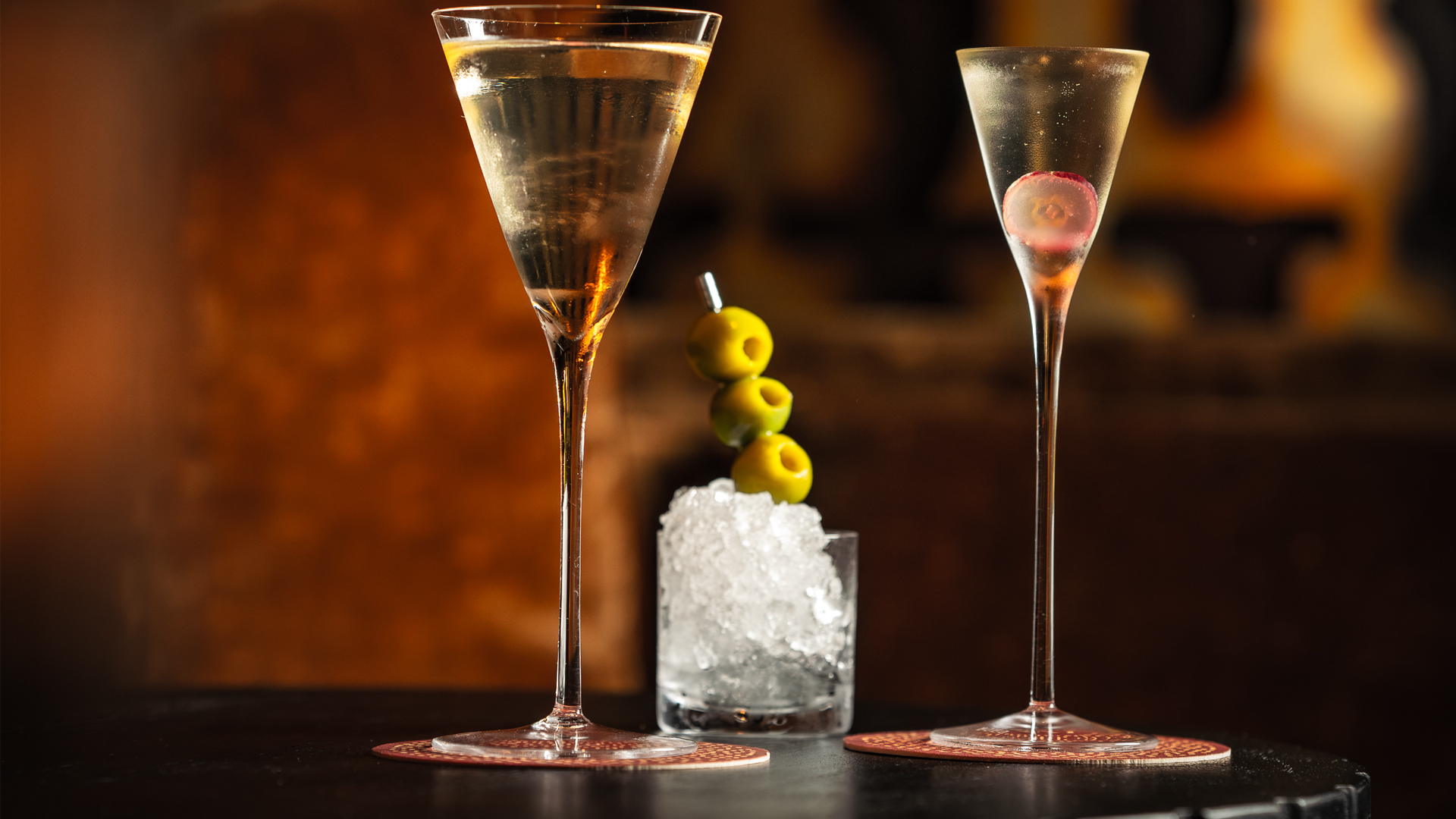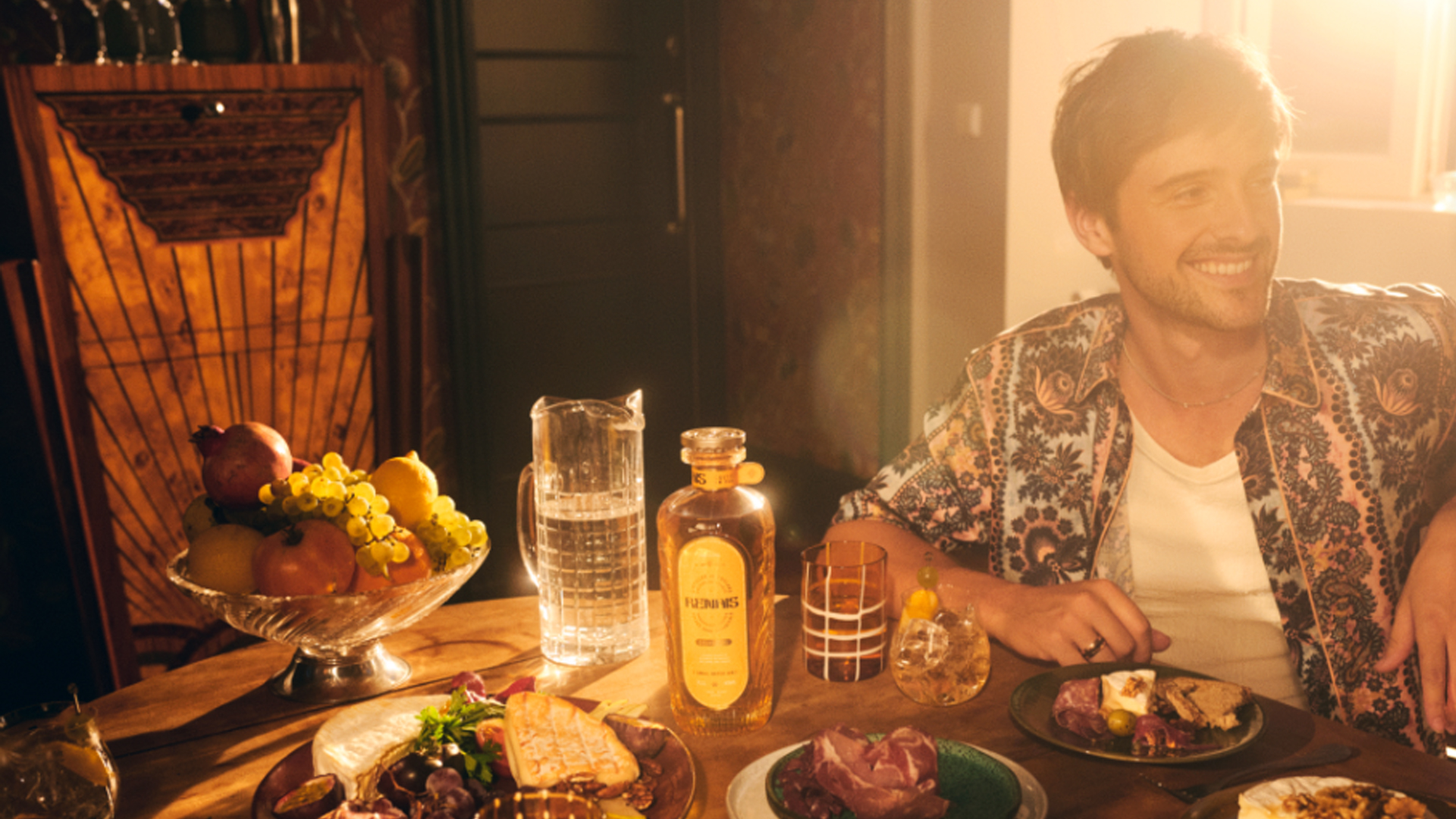

Is there a more iconic cocktail than the martini? From Bond to Bette Davis, Hitchcock to Hemmingway, it’s been the favoured tipple of influential figures both real and fictional for decades since its first appearance back in the mid 19th century.
But the martini is also one of the most varied cocktails when it comes to the intricacies of its construction, with so many twists on the classic martini recipe that the drink might as well have a language all of its own when it comes to ordering one.
Gin or vodka? Wet or dry? What should you be asking for the next time you’re propping up a swanky bar? And how should you go about making the perfect martini at home?
We sat down with Alex Watson, co-founder of Renais Spirits, to get the answers — as well as his personal top tips for pouring a pitch-perfect martini that’d leave 007 himself shaken and stirred.
1. First things first… shaken or stirred?
Alex Watson: Categorically stirred! if you want maximum dilution of your martini please shake away. But you might as well add a glass of water to it too. If you’re in the US your bartender might ask you this, but if you’re in the UK you should ask them to wash their mouth out with soap…
2. What’s a dirty martini, and should I get a tetanus shot before drinking one?
Get exclusive shortlists, celebrity interviews and the best deals on the products you care about, straight to your inbox.
AW: A dirty martini is where you add olive brine into your drink. Personally, I’m not a big fan as I love to taste as much of the flavour of the neat spirit as possible. With regards to your shots, please speak with your local GP.
3. Martinis come wet or dry… but they’re all made of boozy liquids, so what’s that mean?
AW: So - confusingly, wet or dry refers to the amount of vermouth added to your martini (usually dry vermouth just to keep things confusing). The ratio can go all the way up to 50ml - making a 50/50 martini. Again, it’s down to your preference but I prefer my martini’s dry or bone dry (usually meaning a rinse of the glass with vermouth).
4. Vodka or gin — what’s the best base for your martini?
AW: Sorry America, but categorically gin! Vodka makes a great cocktail spirit as it’s basically flavourless, but why would you want a drink comprised of something almost entirely flavourless?! Gin is the classic martini, I believe a vodka martini is a separate drink altogether originally referred to as a kangaroo. Don’t do it people…

5. I’ve completely run out of vermouth, but I’ve got a lovely bottle of gin just staring at me. Can I still have a martini?
AW: Absolutely! Take it neat, this is effectively just a very, very dry martini and just makes you a bit of a badass. We designed Renais to have enough grape character in the liquid that it really requires no vermouth at all. You can also add a tiny splash of wine if you like. Martinis are a personal choice, and very customisable which is what makes them so fun.
6. I like my martini ice cold, but I don’t want to drop giant ice cubes in my dainty glass. Any tips for a frosty tipple?
AW: A great tip here is to pop your martini glasses in the freezer if you really want to impress. No pint making a deliciously cold martini, and putting it in a warm/ room temperature glass. Keep your gin in there for maximum temperature wins.
7. And with that glass in mind… does the glass shape matter? I had a friend at uni who loved a mug of martini, but haven’t heard from him in a long time…
AW: You’re right to be concerned about this friend, something has clearly gone wrong. The glass absolutely matters - and should be served in the classic ‘cocktail glass’ often referred to as the martini glass. It allows enough space up top to drop the right garnish without totally suspending it, allows you to hold the stem without warming the liquid, and ultimately looks the part.
8. I see barkeepers squeezing lemon peel over martinis before serving. What gives?
AW: This is all about enhancing the martini experience. The lemon peel is what adds the aroma to your martini, as its packed full of oils which carry all the flavour. Experiment at home, slice some lemon peel, pinch between your thumb and forefinger and ‘express’ the lemon peel over something.
9. … and how about those olives? Does it matter what type I pair with my martini?
AW: Well you’re not obliged to garnish with an olive - lemon peel will also do absolutely fine, or indeed a pickled onion if you’re peckish. Ultimately, this one just comes down to personal preference.
10. If you’ve never drank a martini before, what should you ask for at the bar — how can you look like a confident pro, and get a drink that won’t blow your head off, as martinis are strong, right?
AW: Right - there’s three big questions that you need to express your preference on. Firstly, vodka or gin (gin please), secondly how ‘wet or dry’ you’d like it, and finally your preference of garnish - twist of lemon, olive, pickled onion etc…
Final question — how do you take yours? What’s your perfect gin recipe?
AW: With the above in mind, my order usually looks like “Please could I have a bone dry Renais Gin martini, with a twist of lemon,”. It’s the perfect way to appreciate a gin, with the temperature drop just pulling out some of the harshest flavours in the booze.
Enjoy people!
- The best gins to drink in 2024 with 45 gin brands taste tested
All image credits: Renais

Gerald Lynch is the Editor-in-Chief of Shortlist, keeping careful watch over the site's editorial output and social channels. He's happiest in the front row of a gig for a band you've never heard of, watching 35mm cinema re-runs of classic sci-fi flicks, or propping up a bar with an old fashioned in one hand and a Game Boy in the other.

